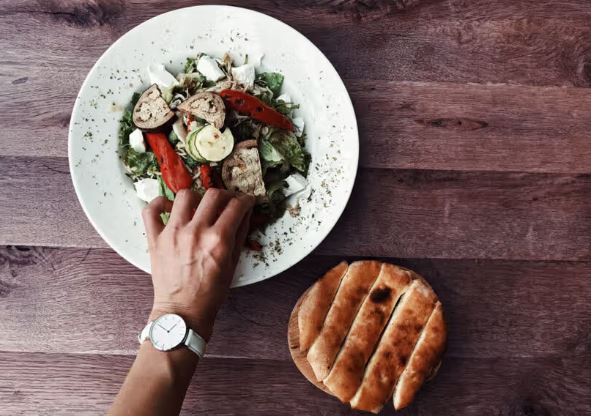A ‘DNA Diet’ May Help Reduce Type 2 Diabetes Risk, New Study Argues
- New research suggests that a diet tailored to an individual’s DNA profile could play a role in managing blood sugar levels and reducing the risk of developing type 2 diabetes among high-risk individuals.
- The pilot study, involving 148 participants, combined genetic profiling with personalized dietary advice, demonstrating significant improvements in blood glucose control compared to traditional dietary interventions.
- This research underscores the potential benefits of using genetic data to tailor health interventions, however, more extensive trials are needed to validate these findings.
Diabetes is a chronic disease that affects how the body handles blood glucose (sugar). With type 2 diabetes, the body does not make or use insulin effectively.
Prediabetes is a state in which a person’s blood glucose levels are elevated beyond the normal range, yet not sufficiently high to meet the criteria for type 2 diabetes.
This state is reversible, unlike diabetes, but without intervention, 5–13% of individuals with prediabetes may advance to type 2 diabetes. Lifestyle changes can cut the progression from prediabetes to type 2 diabetes by half.
Many healthcare professionals, particularly in the United Kingdom, follow National Institute for Health and Care Excellence (NICE) guidelines to promote better diets and more exercise, though these measures can be expensive and effort-intensive.
It is known that genetic markers can help forecast an individual’s likelihood of developing chronic diseases often linked to diet.
For instance, modifying intake of salt and saturated fats can mitigate cardiovascular risks, while altering sugar and saturated fat consumption can reduce the risk of type 2 diabetes.
In a new study, undertaken by Imperial College London in the United Kingdom and DnaNudge, and published in Scientific Reports, researchers investigated diets customized to an individual’s DNA — to assist participants in controlling blood sugar levels and decrease the chances of developing type 2 diabetes.
Personalized DNA-based diets are a new approach to preventing diabetes
Researchers recruited 148 individuals with elevated blood sugar levels and conducted initial assessments by measuring fasting plasma glucose (FPG) — the sugar level in the blood when one has not eaten for a while — and glycated hemoglobin (HbA1c), which indicates average blood sugar levels over the past 2 to 3 months.
Participants completed a food frequency questionnaire to provide details on their regular consumption of specific food items.
The research team then divided the study participants into three groups:
- the control group received dietary guidance based on NICE recommendations from a dietitian
- the intervention group received both the dietitian’s coaching and a diet plan tailored to their DNA
- the exploratory group, which did not receive any coaching, used DnaNudge’s app and wearable technology for self-guidance.
This technology allowed them to scan product barcodes to get personalized food and beverage suggestions based on their DNA while shopping.
The researchers reassessed the participants’ FPG and HbA1c levels at intervals of 6, 12, and 26 weeks. Initially, at the 6-week mark, there was no noticeable difference in health outcomes between the groups.
By the time they checked in at 26 weeks, people who were following a diet based on their DNA — whether they were using the DnaNudge app or not — had noticeable improvements in their blood sugar levels compared to those who weren’t on this special diet.
In simple terms, both groups trying this DNA-guided diet saw their fasting blood sugar and HbA1c levels — which is another measure of blood sugar — drop.
While the NICE recommendations for lifestyle changes—such as incorporating fruits, vegetables, healthy fats and whole grains into your diet—are grounded in evidence and beneficial for the general population, the study suggests that customizing dietary advice based on an individual’s genetic profile may offer superior benefits.
However, the researchers advise caution in interpreting these results due to the study’s limited scale, stressing the need for validation through a larger, randomized controlled trial.
Promising findings but more research needed
Dr. Stainely Williams from Community Health of South Florida Inc., not involved in this research, told Medical News Today that “the standard practice for people with high blood sugar levels in Europe, which in the United States we would call ‘prediabetic patients,’ is to advise people to eat foods low in starch in consultation with a dietician.”
“This study, as it stands, doesn’t show that the standard of care should be changed, including when it comes to implementing individualized DNA-focused diet consultation,” he cautioned.
“But this study is promising in that it suggests it’s worth doing more studies of greater scope,” added Dr. Williams.
“This is typical of a pilot study, which is what this is. So, this means we have some promising data, but it hasn’t really proven anything yet, and we will need a lot more data before we can make any recommendations based on it. As a physician I would never make decisions for my patients based on pilot studies,” he emphasized.
Colette Micko, RDN, registered dietitian at Top Nutrition Coaching, also not involved in the study, told MNT that “this was a very interesting research study in the field of nutrigenomics.”
“It shows the need for more personalized care in the field of prediabetes/diabetes,” Micko pointed out.
Potential implications for blood sugar control
“While the study is trying to show the benefit of DNA-related diet counseling in managing blood glucose levels, future studies have to go far beyond this primary objective before we arrive at data that is significant and applicable,” said Dr. Williams.
“The implications for this research for patients and the public, if any, won’t be seen until we have further studies of greater scope. So, what the study really does is to lay the groundwork for further studies,” Dr. Williams explained.
Micko agreed, noting that, “there were limitations to this study including a small sample size and high attrition at the 26-week mark.”
“This randomized control trial needs to be replicated on a larger sample size with diverse ethnic, socioeconomic and biological backgrounds,” Micko said.
However, she added, “the implications of this study for patients and the public is that more DNA-based nutrition interventions may be available in the future as a main tactic for disease prevention.”
“Specifically, nutrition interventions will be tailored to your genetic predispositions,” she detailed.
Source: https://www.medicalnewstoday.com/articles/a-dna-diet-may-help-reduce-type-2-diabetes-risk-new-study-argues

